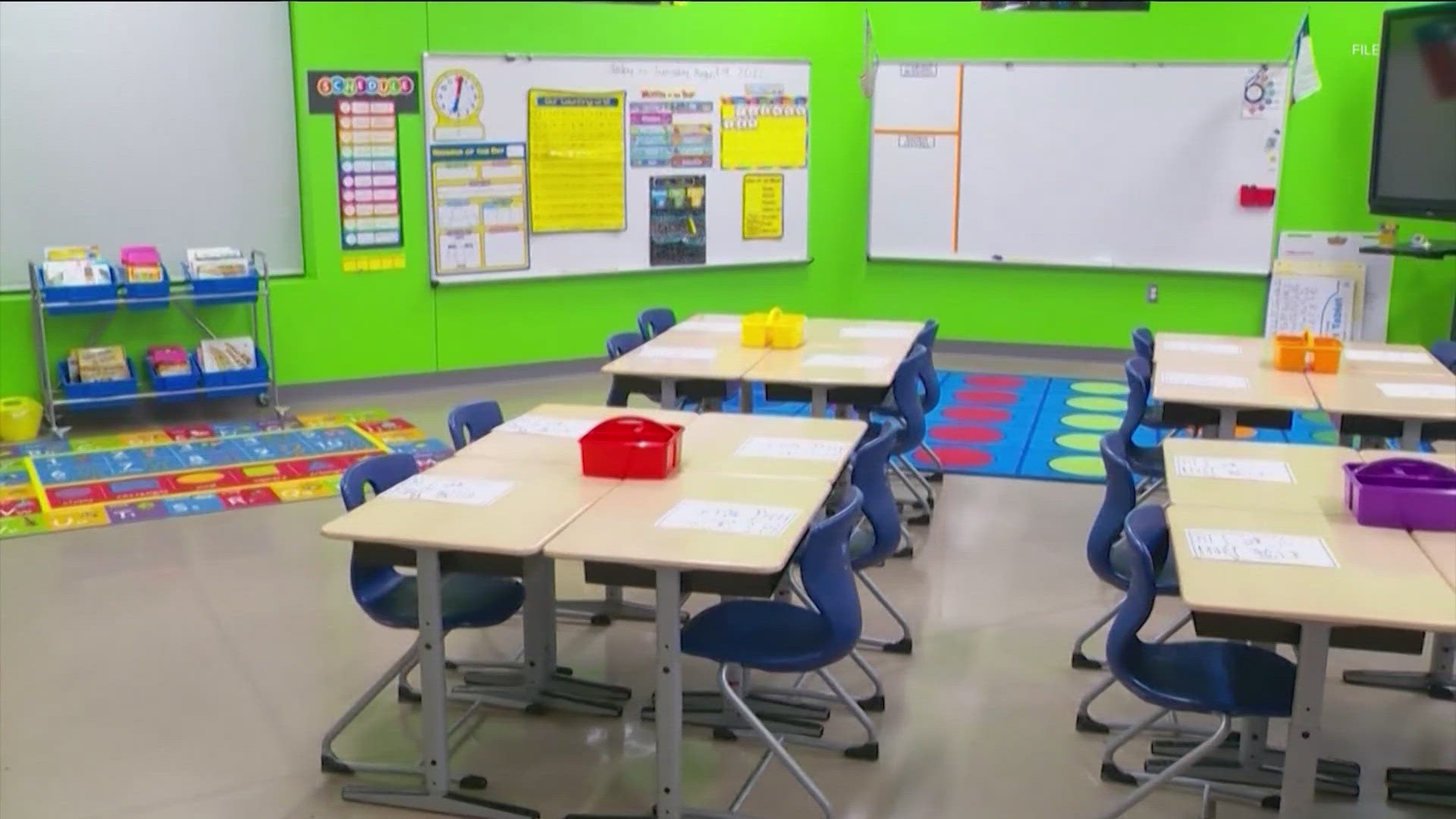AUSTIN, Texas — The legislative process for the upcoming session is officially underway at the Texas State Capitol. Lawmakers are already filing bills for the next session, and school choice is a top priority for Republicans heading into 2025.
We are seeing the first bills filed to establish Education Savings Accounts (ESAs), programs that would let families use tax dollars to send their children to private schools. Republicans and conservatives have long advocated for some kind of school choice program, saying it would give families more options for where to send their kids to school.
In 2023, Texas lawmakers came close to passing school choice legislation. The Senate passed a school choice bill, but in the House, rural Republicans joined with Democrats to block it. Now, with even more pro-school choice Republicans joining the House next session, Gov. Greg Abbott and others believe they have the votes to pass it.
"It's a win-win. Not only do ESAs support families that need an alternative, we see significantly improved results in academic achievement and life outcomes," said Mandy Drogin with the Texas Public Policy Foundation. "It's a rising tide that will lift all boats here in our great state of Texas."
On Nov. 6, Abbott gathered support for school choice in Tyler, Texas, at Kingdom Life Academy, a privately-funded Christian school. The governor said public education and school choice are his priorities.
"Students who may have fallen through the cracks in their public school are going to have a new chance, a new opportunity to be able to learn, to achieve, to succeed, to be on a pathway to getting a job earning a living, providing for the family and living a good life," Abbott said.
On the first day of bill filing, State Rep. Briscoe Cain of Deer Park filed House Bill 212 to reimburse parents for enrolling their children in private schools.
"Every single parent across the state of Texas should have the opportunity, regardless of their ZIP code, the street they live on, the money in their bank account. They should be the ultimate decision-maker," Drogin said. "Every child in Texas who needs an education savings account to select a different learning environment than what they are mandated based on the street they live on should have access to these ESAs."
While she believes state lawmakers should allow every child in need access to an Education Savings Account, Drogin said she also believes there should be a priority for students who are low-income or who have special needs.
"It's really important that we make sure that we take care of the most disadvantaged," Drogin said. "We want to make sure the priority is given to those low-income and special needs students, but every single child, regardless of where they live, if their parent decides that they're not being well served in the school that they are zoned for, then they should have access to this."
School choice has come with some controversy. Opponents argue the money should go to the Texas public school system, which they say is severely underfunded.
"Vouchers weaken our public schools and limit the opportunities for our students," National Education Association (NEA) President Becky Pringle said. "Vouchers siphon critical funding from public schools, and we know that 90% of our students in America go to public schools. Vouchers redirect that money for 90% of our students to private institutions with no accountability."
During a virtual press conference on Wednesday, Pringle and others expressed concern about how the school choice program could negatively impact students.
"In rural areas, the neighborhood public school is most often consequential in the community's economic engine, the community's center and entertainment hub, with schools playing a vital role in things like Friday Night Lights bringing the community together," Pringle said.
Ruth Steinmetz with the NEA said that when public education funding increases, home values and personal income go up while crime and poverty rates decrease. It comes at a time when schools are already facing severe budget restrictions and are looking at making difficult budgetary decisions.
"Vouchers would drain that funding and would take away the economic investment and benefit public schools provide to their local economy," Steinmetz said.
Republican leaders have said school choice will not undermine public education. The system will be set up through the comptroller's office, and the money will then go towards whichever private school the parents choose.
"If parents are happy and you're doing a great job and you're providing a great education, we want to keep making sure that the money is given to the teachers in the classroom and we support that," Drogin said. "We can fully fund our wonderful and high-performing public schools that are doing a great job serving the families in their communities. We can also recognize that sometimes parents need to make a different choice, whether it's their child is not doing well academically, or maybe they're being bullied."
Lt. Gov. Dan Patrick is asking Abbott to declare school choice an emergency item this session, allowing lawmakers to pass bills on the subject within the first 60 days of the session.
Pringle said advocates have fought against proposals for a school choice program in Texas in the past and plan to do so again.
"We've got a lot of work to do in a short time, but we will continue to organize and activate those community leaders and everyone that we've continued to rally during those four special sessions to continue to advocate," Pringle said.
There will likely be multiple school choice bills filed in the upcoming session. In the last session, the disconnect between the House and Senate plans was the price tag, the number of students it would be available to, and who could qualify.
Those are issues that the chambers will have to agree on to get a bill passed when the 89th legislative session starts on Jan. 14.

